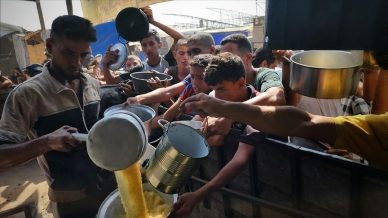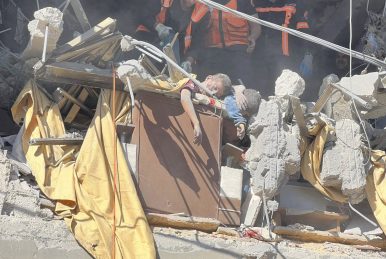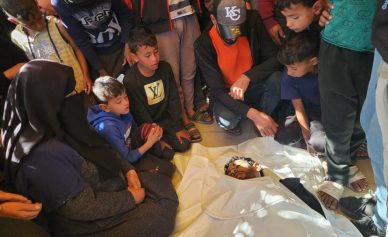GAZA, (PIC)
The Director General of the Palestinian Petroleum Authority, Iyad Al-Shourbajy, warned that the interruption of gas and fuel due to the Israeli closing of crossings signals a real humanitarian disaster in the Gaza Strip, with the cessation of many essential and vital services.
Al-Shourbajy said that the closure of the crossings and the resulting halt in gas and fuel supplies have “serious negative implications for the lives of citizens who are already suffering from the effects of war, aggression, and the Israeli blockade that have caused widespread destruction in the Gaza Strip.”
In statements published by Palestine Today newspaper on Sunday, Al-Shourbajy noted that the interruption of gas and fuel threatens a humanitarian catastrophe due to the resulting halt of many essential goods and services, such as bakeries, hospitals, transportation, and communications, and it threatens to stop water supplies and economic activity.
He pointed out that all these services rely on fuel and gas, emphasizing that one of the repercussions is the inability of people to cook due to the unavailability of domestic gas.
Al-Shourbajy clarified that there is no gas stock in the Gaza Strip because the quantities that were entering were insufficient to meet the citizens’ needs; thus, what was entering was consumed immediately.
Regarding fuel, he indicated that the existing quantities are only for some humanitarian facilities, such as health institutions and municipalities, and these quantities are sufficient for only a few days, and they could stop at any moment, causing a major humanitarian disaster.
He added that other economic sectors, including the private sector, are not supplied with any quantities officially, and what exists is only a very small amount sold on the black market, which is insufficient to meet the minimum consumption needs of the citizens.
Due to this, prices have skyrocketed significantly—according to Al-Shourbajy—adding to the suffering of citizens who are already experiencing poverty, deprivation, and deteriorating financial and living conditions.
The Gaza Strip needs about 7,000 tons of gas monthly, while the quantities entering recently do not exceed 3,500 tons at best, and sometimes do not exceed 2,000 tons, which means that the deficit reaches about 70%. Currently, the supply has completely stopped due to the occupation’s closure of the crossings, according to Al-Shourbajy.
Regarding efforts to control prices, the Director General of the Petroleum Authority said, “There are significant efforts being made by the relevant administrative and governmental bodies to try to curb prices and stop the accelerating pace of inflation by monitoring the markets and following up on major traders and suppliers, attempting to determine and price goods, and preventing monopolies and exploitation of citizens.”
However, he clarified that these efforts alone cannot solve the major problem unless aid and goods flow normally and reach the markets and citizens adequately through the opening of crossings and the lifting of the suffocating blockade against the Palestinian people in the Gaza Strip.
Al-Shourbajy urged countries and international humanitarian organizations to intervene urgently and pressure the occupation to immediately lift the blockade, open the crossings, and allow humanitarian aid to flow before a “catastrophe” occurs.
Despite the signing of an agreement to halt the genocide in Gaza and the exchange of prisoners in three phases starting from January 19, the Israeli occupation continues to violate the agreement, including the closure of the crossings for nine days and preventing humanitarian aid from flowing to the exhausted Gazans suffering from the consequences of the war.
The genocide against Gaza between October 7, 2023, and January 19, 2025, with support from the United States, Britain, and several European countries, has resulted in more than 160,000 martyrs and wounded, most of whom are children and women, and more than 11,000 missing, in one of the worst humanitarian disasters in the world.














